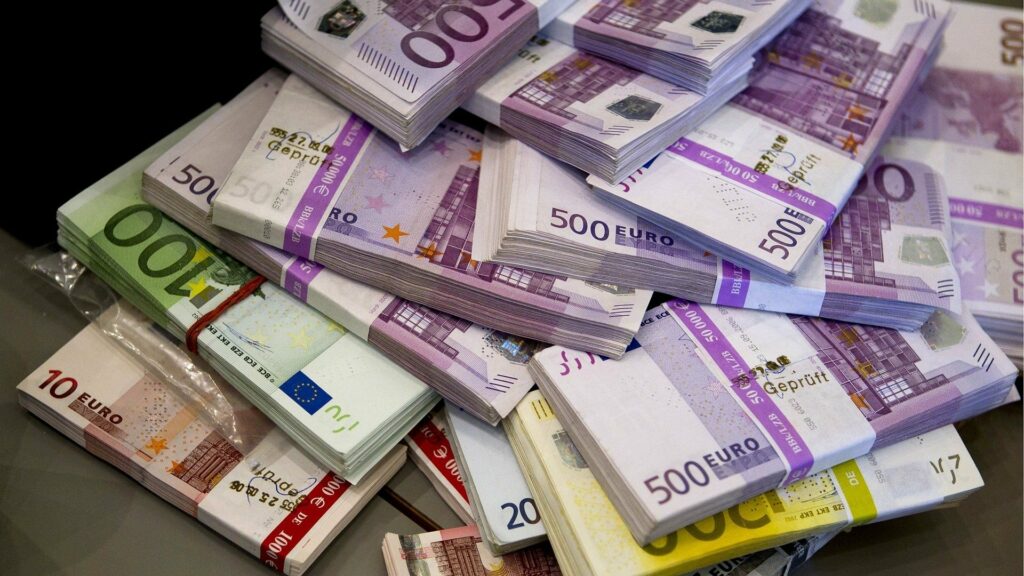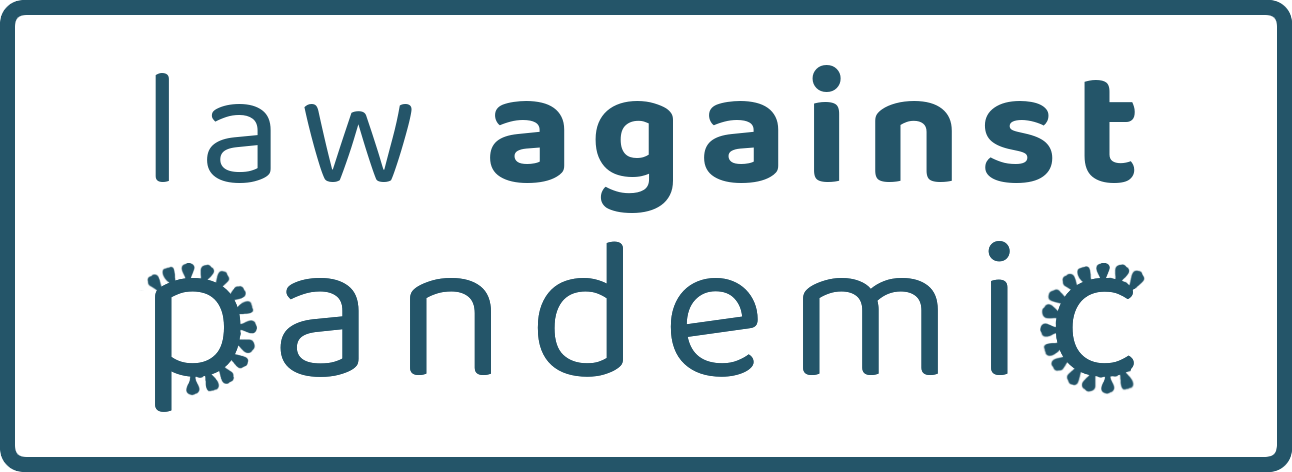
In the face of the COVID-19 outbreak and the economic crisis following it, countries are increasingly applying measures to support enterprises, trade and retain employment in order to keep their economies afloat. Such measures, regardless of how necessary, raise legal questions of their admissibility by law. Subsidies, state aid, are all influencing economies and competition internationally and are regulated within legal frameworks of international trade-related institutions. Looking at the regulations of the European Union [EU] and the World Trade Organization [WTO] it is worth analyzing, whether they are suitable to adapt to an exceptional situation like this one and whether they will be able to raise up to the challenge of the economic fallout caused by the pandemic.
Forecasts for economies report upcoming „brutal shock to global trade”[1]. The pandemic obviously caused a decrease in demand, the incapacity of production, a rise in trade barriers and national “shelter-in-place” orders. The latter introduce measures supporting national economies, which may qualify as state aid, subsidies, tariffs increase, export bans. In principle, all of them are prohibited by international regulations encouraging free international trade. Nonetheless, there are a few exceptions to these rules, both in ordinary and extraordinary circumstances.
1. EU State aid Regulation.
State aid’s legality is exclusively for the European Commission [EC] to decide upon. The whole concept is regulated within Article 107 of the Treaty on the Functioning of the European Union [TFEU]. Scope of prohibition is set within the borders of definition and the exceptions set out in lex specialis and in the EC consent. State aid means public resources intervention in a national economy by assisting companies or industries which is „selective, distorts or threatens to distort competition in so far as it affects trade between Member States”[2] (aid for health services or directly to citizens falls outside the scope of State aid and may be granted immediately).
One of the ways for the aid to fall outside the scope of Article 107 of the TFEU is to grant it not in a ‘selective’ manner. Jurisprudence considers as ‘selective’ measures which produce an advantage for certain undertakings or a certain area of activity[3], regardless, whether aid was aimed at one or more recipients in advance[4]. According to Article 108(4) and 109 of the TFEU, the EC and the Council may adopt Regulations, which can also stipulate certain exemptions that might deem the aid compatible with the EU law and exempt them from the notification requirement from the Article 108(3) of the TFEU. In line with that, following were considered as compatible with the internal market: aid de minimis: [5] up to €200 000 over a three year period per undertaking, as well as certain categories of aid enlisted in the General Block Exemption Regulation[6] granted under certain requirements and thresholds e.g. aid to make good the damage caused by certain natural disasters or aid to small and medium-sized enterprises [SMEs] in the form of investment aid, operating aid and SMEs’ access to finance.
2. Exceptions.
In any case, even within the Article 107 exceptions are widely recognized. Section (2) letter (b) is particularly useful in the times of COVID-19 pandemic, as it renders „aid to make good the damage caused by natural disasters or exceptional occurrences”compatible with the internal market.
„The Commission considers that the coronavirus outbreak qualifies as an exceptional occurrence, as it is an extraordinary, unforeseeable event having a significant economic impact” [7]. This help is nevertheless not exempted from the Commission approval[8].
Also, subject to the Commission’s approval, Member States may use exception provided for in Article 107(3)(c) of the TFEU to meet acute liquidity needs and support companies facing bankruptcy due to the COVID-19 outbreak[9]. This exception covers „aid to facilitate the development of certain economic activities or of certain economic areas, where such aid does not adversely affect trading conditions to an extent contrary to the common interest”.
Moreover, on the 19th March, the EC adopted the Temporary Framework for State aid measures to support the economy in the current COVID-19 outbreak[10], which will be in place until the end of the year. In this document, the Commission considered that State aid is justified and may be declared compatible with the internal market on the basis of Article 107(3)(b) of the TFEU (exception covering aid to remedy a serious disturbance in the economy of a Member State), when it is granted temporarily, targets the liquidity shortage faced by undertakings and ensures that the disruptions caused by the COVID-19 outbreak do not undermine their viability. In this Communication, the EC enlisted compatibility conditions, which it will take into consideration in the process of granting approval – whether measures: are necessary, appropriate, proportionate to remedy a serious disturbance in the economy of the Member State concerned and meet all the conditions of the Communication.
This Communication also provides for 5 specific types of aid that may be granted in the times of pandemic:
1. Direct grants and or tax advantages of up to EUR 800,000 in total to undertakings;
2. State guarantees for loans taken by companies from banks;
3. Subsidised public loans to companies;
4. Safeguards for banks that channel state aid to the real economy;
5. Short-term export credit insurance.
What is more, the EC has accelerated the process of granting approval significantly, with it lasting now approx. 5 days. To this day, the Commission has granted approval to State aid Schemes of over half of the Member States. Polish State aid Scheme was approved on the 3rd of April and amounts to €22 billion[11].
3. WTO subsidies regulation.
Within the WTO law regime, it is Article XVI of the General Agreement on Tariffs and Trade[12] [GATT] and the Agreement on Subsidies and Countervailing Measures[13] [SCM] which regulate financial contribution by a government or any public body to their economies. Here, the “specificity” requirement applies (Article 2 of the SCM) – similar like the EU’s ‘selectivity’. In Article 5, the SCM enlists subsidies which are prohibited (actionable) – these are „causing injury to the domestic industry of another Member, nullification or impairment of benefits, or serious prejudice to the interests of another Member”.Article 8 enlists wide catalog of non-actionable subsidies ie. permitted, e.g. assistance for research activities.
With regard to agriculture, the Agreement on Agriculture[14], sets autonomous subsidies’ regime and based on limitation requirements, distinguishes categories of domestic support:
– “Green Box” measures – which are exempted from any financial limitations – must have no, or minimal trade-distorting effects and must be funded by governmental programmes,
-“Amber Box” measures – which constitute trade-distorting support and are subject to reduction commitments ie. are limited up to certain maximum levels, which are different for developed and developing countries.
Other unlimited measures:
– developmental measures in developing countries designed to encourage agricultural and rural development and funded by governmental programmes,
– “Blue Box” measures – which are certain direct payments under production-limiting programmes,
– de minimis levels of support – which set a threshold for allowed support on 5 per cent of the total value of production.
There are also exceptions provided outside of the Agreement on Agriculture – as an example, if a breach of the WTO law was exceeding the “ceiling” threshold, which recently India did with regard to rice[15][1] . As justification, India has invoked lex specialis of the WTO[16] – provisions which allow developing WTO Member States to exceed support limits as a result of public stockholding programmes for food security.
4. Exceptions.
Regardless of those regulations, in the event of extraordinary circumstances such as the present pandemic, Contracting Parties have a right to derogate from the existing WTO framework. Countries may invoke exceptions provided for in the GATT.
Article XX secures the possibility to adopt or enforce any measures, contrary to the WTO law, but in section (b) „necessary to protect human, animal or plant life or health”. This provision seems particularly useful in granting subsidies aimed at directly combating the coronavirus (e.g. contributions for medical equipment enterprises). Additionally, the Agreement on the Application of Sanitary and Phytosanitary Measures[17] elaborates on this General Exception and provides for the rights and obligations connected with introducing „sanitary and phytosanitary measures necessary for the protection of human, animal or plant life or health”[18].
Furthermore, for targeting the negative impacts of the COVID-19 on the economy by unlawful subsidies, countries will probably invoke the Security Exception as a justification. Described in Article XXI(b)(iii) of the GATT, the “essential security interests” clause was recently a controversial, rarely used tool. It is a vague and therefore often far-fetched exception, allowing to apply prohibited measures which country „considers necessary to protects its essential security interests, taken in time of war or other emergency in international relations”. The first controversy around it concerned an issue, whether words „it considers necessary” render it being of self-judging character. The WTO Dispute Settlement panel recently ruled out this question negatively[19]. Another, not resolved yet question asks, whether essential security interests may cover that of an economic nature. Taking into account the fact that the GATT concerns exclusively trade, it would be contrary to the rules of interpretation to claim that the Security Exception does not cover economic emergencies, because the object and purpose of the treaty (recognized as means of interpretation in Article 31 of the Vienna Convention on the Law of Treaties[20]) point at it. However, what is worth mentioning, while the economic crisis in Argentina, many arbitral cases analyzed this issue and the positive answer was very rare[21]. Now, when not only one country but almost all of them will be in an economic emergency, I doubt whether any country will contest the legality of the usage of the Security Exception at the times of the pandemic.
5. Comparison.
Both described international trade law regimes are armed with exceptions suitable for the harsh times. While usually usage of them was controversial and amounted to abuse, now it is an adequate moment to invoke them. A significant difference is seen on the level of respect which the international community pays to procedural requirements connected with using it. While the European Union’s approval for State aid is commonly sought, the WTO is most often not notified about the breach of its law in accordance with exceptions invoked, alike when it comes to subsidies, export restrictions and tariffs increase[22] (however some of the cases were notified[23]). While it may seem flattering for euro-enthusiasts, it also brings expectations which EU is trying to meet by €500 billion rescue deal[24]. On the other hand, it is the next step in progressive marginalization of the WTO significance, with its currently dysfunctional Dispute Settlement Mechanism already in limbo.
But the reply to the pandemic crisis on the international level is still rather muffled. Calls for cooperation echo through the media, but the only answer is a long silence, lined with political and financial interests. Ironically, the need for international support will not disappear, even if the danger of the virus will be soon hopefully combated. As it appears to be the test for the efficiency of international institutions, legal solutions and the money will have to be found.
###
References:
[1] The Economist: https://www.economist.com/finance-and-economics/2020/03/26/if-you-thought-the-trade-war-was-bad-for-global-commerce, (last visited April 14, 2020).
[2] Article 107 Treaty on the Functioning of the European Union.
[3] T-152/99 HAMSA v Commission, EU:T:2002:188, §156; T-210/02 British Aggregates v Commission, EU:T:2006/253, §105.
[4] T-55/99 Confederación Española de Transporte de Mercancías v Commission, EU:T:2000:223, §40.
[5] Commission Regulation (EU) No 1407/2013 of 18 December 2013 on the application of Articles 107 and 108 of the Treaty on the Functioning of the European Union to de minimis aid.
[6] Commission Regulation (EU) N°651/2014 of 17 June 2014 declaring certain categories of aid compatible with the internal market in application of Articles 107 and 108 of the Treaty.
[7] Commission Decision (EU) State aid register: SA.56765; Commission approves French scheme deferring payment by airlines of certain taxes to mitigate economic impact of coronavirus outbreak.
[8] Commission Communication (EU) COM(2020) 112 final of 13 March 2020: Coordinated economic response to the COVID-19 Outbreak.
[9] Ibid.
[10] Commission Communication (EU) COM(2020) 1863 final of 19 March 2020: Temporary Framework for State aid measures to support the economy in the current COVID-19 outbreak.
[11] Commission Decision (EU) State aid register: SA.56876, Commission approves Polish scheme enabling public guarantees up to €22 billion to support economy in coronavirus outbreak.
[12] General Agreement on Tariffs and Trade 1994, Marrakesh Agreement Establishing the World Trade Organization, Annex 1A, Apr. 15, 1994, Annex 1A, 1867 U.N.T.S. 187.
[13] Agreement on Subsidies and Countervailing Measures, Apr. 15, 1994, 1869 U.N.T.S. 14.
[14] Agreement on Agriculture, Apr. 15, 1994, 1867 U.N.T.S. 410.
[15] India Notification to the Committee on Agriculture from 30th of March 2020, G/AG/N/IND/18.
[16] Bali Ministerial Decision on Public Stockholding for Food Security Purposes (WT/MIN (13)/38) and the General Council Decision (WT/L/939).
[17] Agreement on the Application of Sanitary and Phytosanitary Measures, 1867 U.N.T.S. 493.
[18] Article 2(1), Agreement on the Application of Sanitary and Phytosanitary Measures 1867 U.N.T.S. 493.
[19] Panel Report, Russia—Traffic in Transit, §130, WTO Doc. WT/DS512/R (adopted Apr. 5, 2019).
[20] Vienna Convention on the Law of Treaties, May 23, 1969, 1155 U.N.T.S. 331.
[21] See: LG&E Energy Corp and Others v. The Republic of Argentina, ICSID Case No. ARB/02/1, Decision on Liability §251 (Oct. 3, 2006); see also: Enron Corporation and Ponderosa Assets L.P. v. Argentine Republic, ICSID Case No. ARB/01/3, Award, §334 (May 22, 2007).
[22] Deputy Director-General Alan Wolff – speech delivered to a virtual meeting of the Washington International Trade Association on 26 March.
[23] World Trade Organization, https://www.wto.org/english/tratop_e/covid19_e/covid19_e.htm (last visited April 14, 2020).
[24] Joint Communication (EU) JOIN(2020) 11 final of 8 April 2020 on the Global EU response to COVID-19.
Treaties:
1. Agreement on Agriculture, Apr. 15, 1994, 1867 U.N.T.S. 410.
2. Agreement on the Application of Sanitary and Phytosanitary Measures, 1867 U.N.T.S. 493.
3. Agreement on Subsidies and Countervailing Measures, Apr. 15, 1994, 1869 U.N.T.S. 14.
4. General Agreement on Tariffs and Trade 1994, Marrakesh Agreement Establishing the World Trade Organization, Annex 1A, Apr. 15, 1994, Annex 1A, 1867 U.N.T.S. 187.
5. Treaty on the Functioning of the European Union, 2008/C 115/01.
6. Vienna Convention on the Law of Treaties, May 23, 1969, 1155 U.N.T.S. 331.
Case law:
1. T-152/99 HAMSA v Commission, EU:T:2002:188.
2. T-210/02 British Aggregates v Commission, EU:T:2006/253.
3. T-55/99 Confederación Española de Transporte de Mercancías v Commission, EU:T:2000:223.
4. Panel Report, Russia—Traffic in Transit, WTO Doc. WT/DS512/R (adopted Apr. 5, 2019).
5. LG&E Energy Corp and Others v. The Republic of Argentina, ICSID Case No. ARB/02/1, Decision on Liability (Oct. 3, 2006).
6. Enron Corporation and Ponderosa Assets L.P. v. Argentine Republic, ICSID Case No. ARB/01/3, Award (May 22, 2007).
EC Regulations:
1. Commission Communication (EU) COM(2020) 112 final of 13 March 2020: Coordinated economic response to the COVID-19 outbreak.
2. Commission Communication (EU) COM(2020) 1863 final of 19 March 2020: Temporary Framework for State aid measures to support the economy in the current COVID-19 outbreak.
3. Commission Decision (EU) State aid register: SA.56765; Commission approves French scheme deferring payment by airlines of certain taxes to mitigate economic impact of coronavirus outbreak.
4. Commission Decision (EU) State aid register: SA.56876, Commission approves Polish scheme enabling public guarantees up to €22 billion to support economy in coronavirus outbreak.
5. Commission Regulation (EU) No 1407/2013 of 18 December 2013 on the application of Articles 107 and 108 of the Treaty on the Functioning of the European Union to de minimis aid.
6. Commission Regulation (EU) No 651/2014 of 17 June 2014 declaring certain categories of aid compatible with the internal market in application of Articles 107 and 108 of the Treaty.
WTO Regulations:
1. Bali Ministerial Decision on Public Stockholding for Food Security Purposes (WT/MIN (13)/38).
2. General Council Decision (WT/L/939).
3. India Notification to the Committee on Agriculture from 30th of March 2020, (G/AG/N/IND/18).
Others:
1. Deputy Director-General Alan Wolff – speech delivered to a virtual meeting of the Washington International Trade Association on 26 March.
2. Joint Communication (EU) JOIN(2020) 11 final of 8 April 2020 on the Global EU response to COVID-19.
3. The Economist: https://www.economist.com/finance-and-economics/2020/03/26/if-you-thought-the-trade-war-was-bad-for-global-commerce (last visited April 14, 2020).
4. World Trade Organization, https://www.wto.org/english/tratop_e/covid19_e/covid19_e.htm (last visited April 14, 2020).


